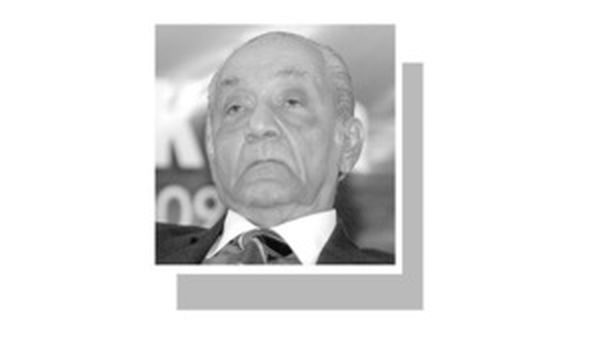“THERE is no use making the tenure of the election commissioner a fixed and secure tenure if there is no provision in the constitution to prevent either a fool or a knave or a person who is likely to be under the thumb of the executive. My provision — I must admit — does not contain anything to provide against nomination of an unfit person to the post of chief election commissioner or the other election commissioners. I do want to confess that this is a very important question and it has given me a great deal of headache,” said Dr. B.R. Ambedkar, the prime architect of India’s constitution, in the Constituent Assembly on June 15, 1949.
It is a pity that he did not tackle his “headache” and left a loophole. Some knaves and fools did become chief election commissioners. On Oct 23, 2018, the supreme court did what it has been doing in the last two decades or more — fill by judicial orders the gaps which the legislature ought to have filled. It took up a petition, filed in the public interest in 2015, to devise “a foolproof and better system of appointment of members of the election commission. We are of the view that the matter requires a close look and interpretation of the provisions of Article 324 of the constitution.”
Article 324 of India’s constitution says: “The election commission shall consist of the chief election commissioner and such number of other election commissioners, if any, as the president may from time to time fix and the appointment of the chief election commissioner and other election commissioners shall, subject to the provisions of any law made in that behalf by parliament, be made by the president.”
Ambedkar had two solutions. One was an instrument of instructions to control the president’s discretion. He dropped it four months later. Another was to empower parliament to legislate on the subject. But which government would sponsor a law to fetter its own power of appointment?
If the supreme court passes any order on the petition, it will be creating with the best intention a stop-gap arrangement only to create a royal mess in the long run. It did that on Oct 6, 1993. It set up a ‘collegium’ of its senior judges to appoint judges to the supreme court and the high courts. This was a response to Indira Gandhi’s decision in 1973 to pack the courts with ‘committed’ judges.
After her defeat in the polls in 1977, the supreme court embarked on ‘judicial activism’ which saw in 1993 that odious and unique spectacle of judges appointing judges. Attempts to set up a judicial commission by law failed once the supreme court struck down the law which set it up.
There is a serious problem. But that is not the way to solve it. Successive chief election commissioners have been criticised for partisanship. At least in one case the partisanship was so patent as to emerge clearly in the report of the chief commissioner himself.
Shri S.P. Sen Verma’s report, The Fifth General Elections in India, 1971-72, contains blatantly political remarks reflective of a clear bias in favour of the party led by Indira Gandhi. The CPI-M held him responsible for rigging the elections to the West Bengal Legislative Assembly.
S.L. Shakdher was rightly criticised for delaying by-elections arbitrarily. R.K. Trivedi was criticised for adopting double standards in holding elections in Assam despite the clear certainty that a free and fair poll was simply not possible in the state. This was as late as in 1983, 53 years after this constitution had come into force.
A non-official committee on electoral reforms set up by Jayaprakash Narayan said: “The tendency of the government is not to look for the qualities of independence and impartiality which would satisfy the public regarding the fairness of the electoral process. Moreover, it is necessary to ensure that the person appointed has no sense of obligation.
“We, therefore, suggest that the members of the election commission should be appointed by the president on the advice of a committee consisting of the prime minister, the leader of the opposition (or a member of parliament selected by the opposition) in the Lok Sabha and the chief justice of India.”
India began well. The first chief election commissioner was Sukumar Sen, a tower of integrity and independence. Appointment of T.N. Seshan as chief election commissioner in 1990 marked a turning point. This abrasive character changed the work culture and set an example of independence which his successors followed.
All that the court can and should do is to point out the gravity of the problem, the dangers posed by the loophole, and suggest legislation by parliament. That will alert public opinion. The temptation to run a nanny state by judicial fiat must be resisted.
- The writer is an author and a lawyer based in Mumbai. Source: www.dawn.com



